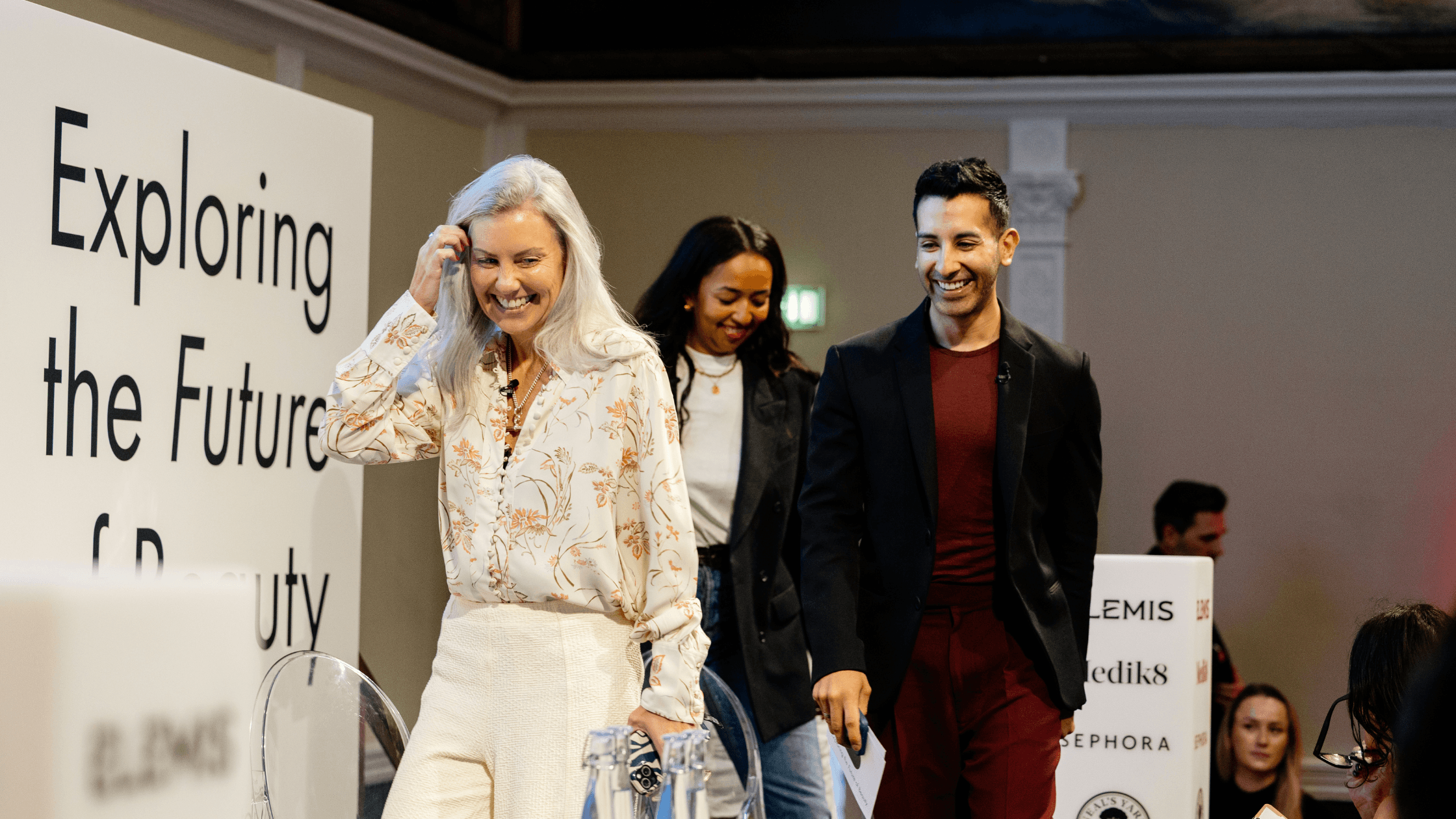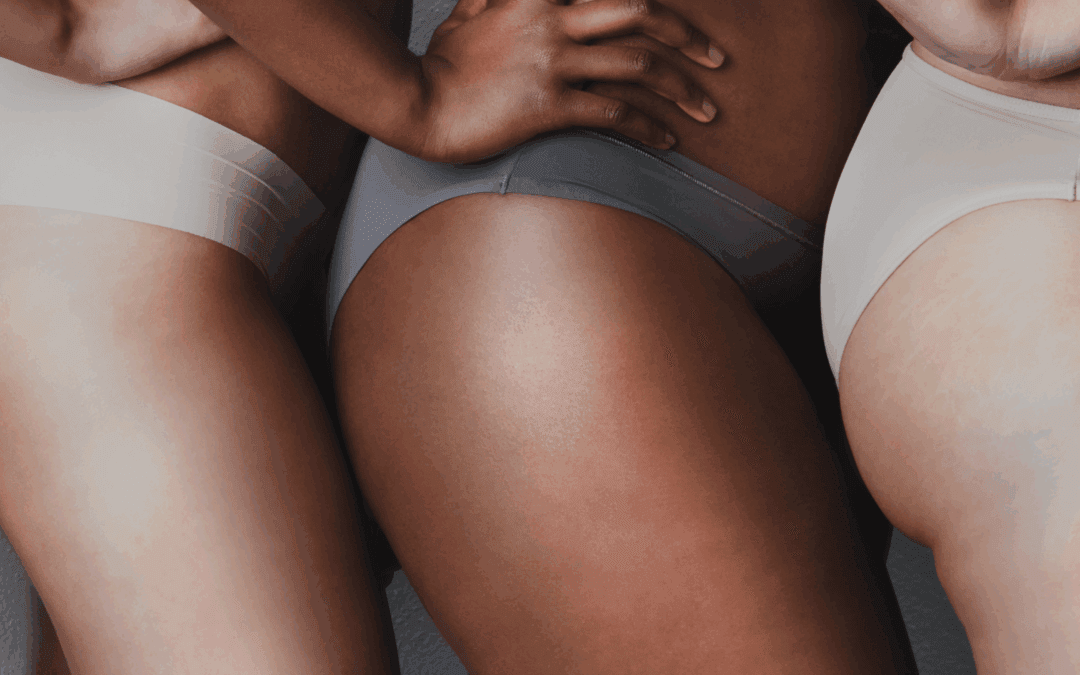The British Beauty Council’s Industry Hub brought together beauty leaders to consider the biggest opportunities and challenges facing the future of the sector.
Supported by Sephora UK, ‘Shaping future talent, responsibly’ considered the importance of representation at every level of business for the nurturing of a socially sustainable industry.
The session featured: Sarah Boyd, Managing Director of Sephora UK; Rhea Cartwright, Strategy Consultant; Jack Oliver, Multi-makeup artist, and Enyo Onuh, Winner of the Unidays X Sephora UK X British Beauty Council’s Student Shadow Board competition.
From the get-go, one thing was agreed – the beauty industry enables strong social mobility for certain characteristics, backed up by the high proportion of women in our sector (see: Value of Beauty Report). However, there is still much to be done when it comes to welcoming diverse talent into the sector and ensuring progression.
From shop floor to senior management, the overarching belief was: you can’t be what you can’t see. Here’s what the experts think can drive change at every level…
Boyd says: ‘Beauty is one of the most diverse industries, but we all need to do more with specialists across the industry to push the boundaries of what is important,’ pointing towards the tailored initiatives that have been introduced by Sehora alongside charity partners and leading advocates. From ‘Safe Spaces’ to its ‘Quiet Hours’, the schemes push for increased inclusivity in novel ways and move away from the often more ‘overdone’ commitments around metrics and glass ceilings.
It’s not just consumer interactions that Sephora UK considers when it comes to opportunity; it filters down to scheduling, too: ‘We have some incredible talent who have been in the department store environment that are often in their 70s – they only want to do a few hours a week. How do you create flexibility to be able to bring this incredible talent in?’
Jack Oliver has long worked with Sephora UK on its shop floor inclusion strategies, training shop staff on ‘how they can make customers feel welcome but also how they can feel welcome themselves – they are the ones that are there 37.5 hours of the week’.
This commitment and dedication comes from personal experiences – ‘I have been the different one on the shop floor. It was always me who was pushed into a role cleaning brushes and putting things through the till’.
But, they treasure Sephora UK for putting its head above the parapet, placing diversity at the centre of its global mission: ‘You have to have people who are willing to drive change and take that space. People like Sarah at Sephora UK, who are willing to welcome people like me.’
Cartwright argues that the shop floor is one of the more diverse spaces. As the first black head of beauty luxury buying in the UK, she has experienced first-hand the realities of being the only person of colour in the boardroom.
‘The brands and retailers at the forefront of beauty innovation and beauty commerce are not representative of our society. It’s frustrating,’ she starts. ‘There are knee-jerk reactions (in corporations) where a person of colour is placed in a high position. That person is often not representative.
‘Socio-economic level is a key driver of disparity, and a privately educated black woman doesn’t talk to black women in the UK – that’s something that people aren’t talking about.’
On top of socio-economic inequalities, Cartwright shed light on the lack of visibility and representation in talent pipelines to the beauty industry as a result of low pay and lack of role models. Her questions are: ‘How do we get people in and then support them on their trajectory? Once you’re in, it doesn’t mean you will have a great time. Are companies willing to deploy support to ensure that people are truly represented and held?’
And, as someone with the drive and ambition to enter our pipeline, Onuh’s thoughts carry more weight than ever. Alarmingly, the Student Shadow Board winner sees no opportunities in the corporate beauty world, believing the C-suite level is out of reach. However, she feels welcomed and seen in the digital world, using social media as her entry point.
She adds: ‘The industry is dormant – over the past decade, we have seen a dramatic growth in opportunities in the beauty industry. But I believe people have gotten comfortable with where we are when in reality we need to keep the momentum going.’
Onuh’s sentiment only serves to reinforce the message of the session – if a beauty-obsessed Gen Z can’t see herself in a genuine position of power, why would she believe this is achievable?
To close, moderator Jamie Gill – Founder of The Outsiders Perspective – put the power into beauty’s hands: ‘If anyone is going to lead this charge, it has to be fashion and beauty – it has been, and has to be, built for everyone.’
You can watch the session here:
Interested in finding out more about diversity and inclusion in the beauty industry? Read the ‘A Beauty Industry That Looks Like You’ report here.




